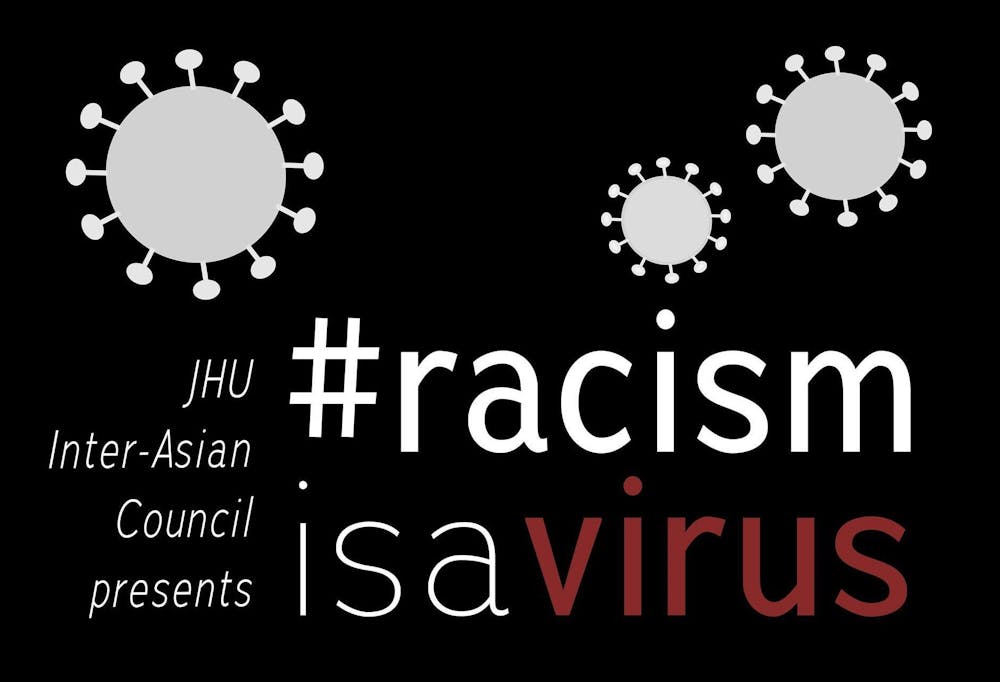Spreading alongside coronavirus (COVID-19) are incidents of racism and xenophobia primarily targeted at the Asian Pacific Islander Desi American (APIDA) community. In response, the Inter-Asian Council (IAC) has launched a project titled #RacismIsAVirus to raise awareness of how those in the APIDA community and others have been affected by the racialization of COVID-19. The project will continue through May 1.
The IAC is collecting submissions from the public to share on social media. Sophomore Joyce Wang, an IAC member, hopes that this will help to empower afflicted groups.
“For a lot of people in the IAC, even if we haven’t been directly affected by these instances of racism, we definitely know people who have been affected,” she said. “We want to illustrate the point that it’s not the fault of the APIDA community and highlight stories from everyday people to show how much this mindless attacking has been affecting them.”
IAC President Alisha Chen, a junior, explained that the group aims to promote a hashtag that already existed on social media. According to Chen, the idea for the project emerged after seeing media portrayals of COVID-19 and hearing anecdotes from people in the APIDA community.
Chen recalled an experience she had after the University announced its transition to remote instruction.
“When I was driving home with my parents, there was an individual who literally shouted at my parents from our car, ‘You brought this virus to the U.S. You’re starting the apocalypse,’” Chen said. “Obviously, there was no physical altercation, but definitely the words speak a lot to the prevalent racism and xenophobia that exists toward Asian populations.”
Junior IAC member Sam Chun discussed other reports of discrimination that news outlets have reported on.
“There are incidents in other states where a man threw acid on an Asian woman, and there was a stabbing incident, too,” Chun said. “But mostly what I’ve heard are verbal attacks, which of course, still make you feel unsafe and it’s unacceptable.”
Through the campaign, freshman IAC member Isabel Veloso aims to show racist individuals the effects of their actions.
“You need to change people’s perceptions by educating them,” she said. “Fighting racism is definitely an ongoing project.”
Junior IAC member Michael Lan argued that Trump contributes to the spread of these attitudes.
“Calling it ‘the China virus’ will cause people to not just associate it with China but also with Chinese Americans,” he said. “In the past, it has been pretty evident that when you generalize an Asian country, it generalizes to most of the Asian community.”
After the campaign, Lan hopes that people come to understand the large impacts of seemingly small actions. Trump’s phrasing, he said, can inspire further attacks on the APIDA community.
Chen agreed, emphasizing that the Hopkins community must be aware of sinophobia.
“A lot of us are going into medicine. We need to make sure that we are culturally competent and using the right language,” she said. “Seeing it from a lens of equity and justice is really important.”
Lan noted that other Asian groups at Hopkins have promoted the campaign. In addition, Chun hopes that the IAC will be able to partner with the Office of Multicultural Affairs and the Multicultural Leadership Council.
While the campaign’s primary focus is the APIDA community, Chun stressed that the IAC recognizes that prejudice being unmasked by disease is not uncommon, citing the 2002–2004 severe acute respiratory syndrome outbreak and the 2014 Ebola virus epidemic in West Africa. Nationwide, COVID-19 is disproportionately affecting African Americans.
“There are systematic disparities in providing adequate health care and resources to different communities during the pandemic. A lot of the time, that operates on a racial basis,” Chun said. “When we are searching for stories, we’re not only looking at the APIDA community but an even wider range of responses on how racism plays a role.”
Wang highlighted the benefits of social media activism. Moving forward, Chen envisions for the project to be showcased online or in-person, depending on whether students return to campus in the fall.
“If anyone has stories they would like to share, feel free to,” Chen said. “It’s important to make sure that solidarity is built around our campus and beyond.”





